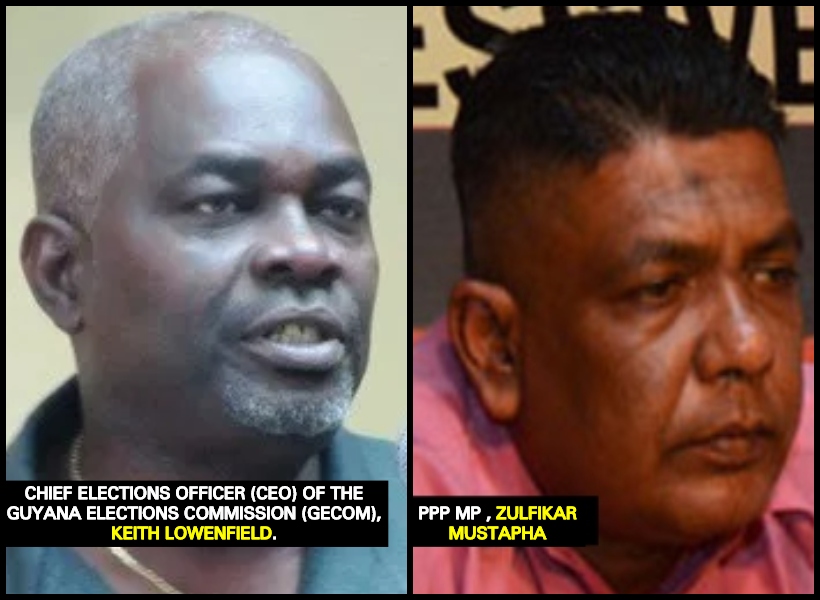Peoples’ Progressive Party/Civic (PPP/C) Member of Parliament Zulfikar Mustapha is denying claims made by Chief Elections Officer (CEO) of the Guyana Elections Commission (GECOM) Keith Lowenfield that he walked out of deliberations on house-to-house registration in May.
The Private Sector Commission (PSC) took the CEO to task last week, claiming that there was a “total absence” of consultation with the political parties’ scrutineers.
In response, the CEO wrote a letter to Gerry Gouveia, Chairman of the PSC, in which he stated, “At a meeting held on 2nd May 2019 with political party stakeholders, the delegation representing the People’s Progressive Party, headed by Mr Zulfikar Mustapha, explicitly stated that they will not be participating in any deliberation on house-to-house registration since they are not in agreement with the exercise and walked out.”
Now, Mustapha has written to Lowenfield accusing him of “peddling falsehood” and engaging in wanton deception.
In the letter seen by the Guyana Standard, Mustapha wrote, “At no point in time did I take part in such action during the meeting in question. As a matter of fact, I remained and raised objections to the conduct of the house-to-house registration and questioned why GECOM pushed to discuss same when the matter was at the time engaging the attention of the court.”
The PPP MP said also that he told the deliberators that GECOM must always have a valid list of electors given that the current one expired on April 30, 2019. He said that GECOM should not commence a Claims and Objections exercise to validate the list.
The house-to-house registration being carried out by GECOM is now marred in controversy, following the CCJ’s validation of the no-confidence motion which has now reduced the David Granger-led regime into a “caretaker” government.
The controversy was further exacerbated after a notice signed by the former Chairman of GECOM, Justice (Retired) James Patterson, was published informing the nation that the process of house-to-house will commence from July 20, 2019 (last Saturday). The notice was placed days before the CCJ ruled that Patterson’s appointment was unconstitutional, and therefore flawed.
The coalition government, in the meanwhile, has been pushing for the house-to-house method, claiming that it contains the required methodological components to accurately capture electorate data for a new voters’ list following the expiration of the last one in April of this year.
Their stance is contrary to that of the Parliamentary Opposition, the PPP/C. The party is contending that both the government and GECOM must abide by the constitutional provisions which demand – among other things – that fresh elections are to be held within three months of a successful no-confidence motion. They are further nailing home that the house-to-house registration process will not allow elections to be held within that specified time. This contention has given greater rise to the PPP’s supposition that the process is a ploy formulated by both GECOM and the government to stall the holding of general and regional elections.
President David Granger has made it clear that GECOM is a constitutional body, meaning that its operations cannot be dictated by the government. The opposition through its Leader Bharrat Jagdeo, however, thinks otherwise. He believes that the elections body has been compromised and accuses the government of puppeteering the CEO.













